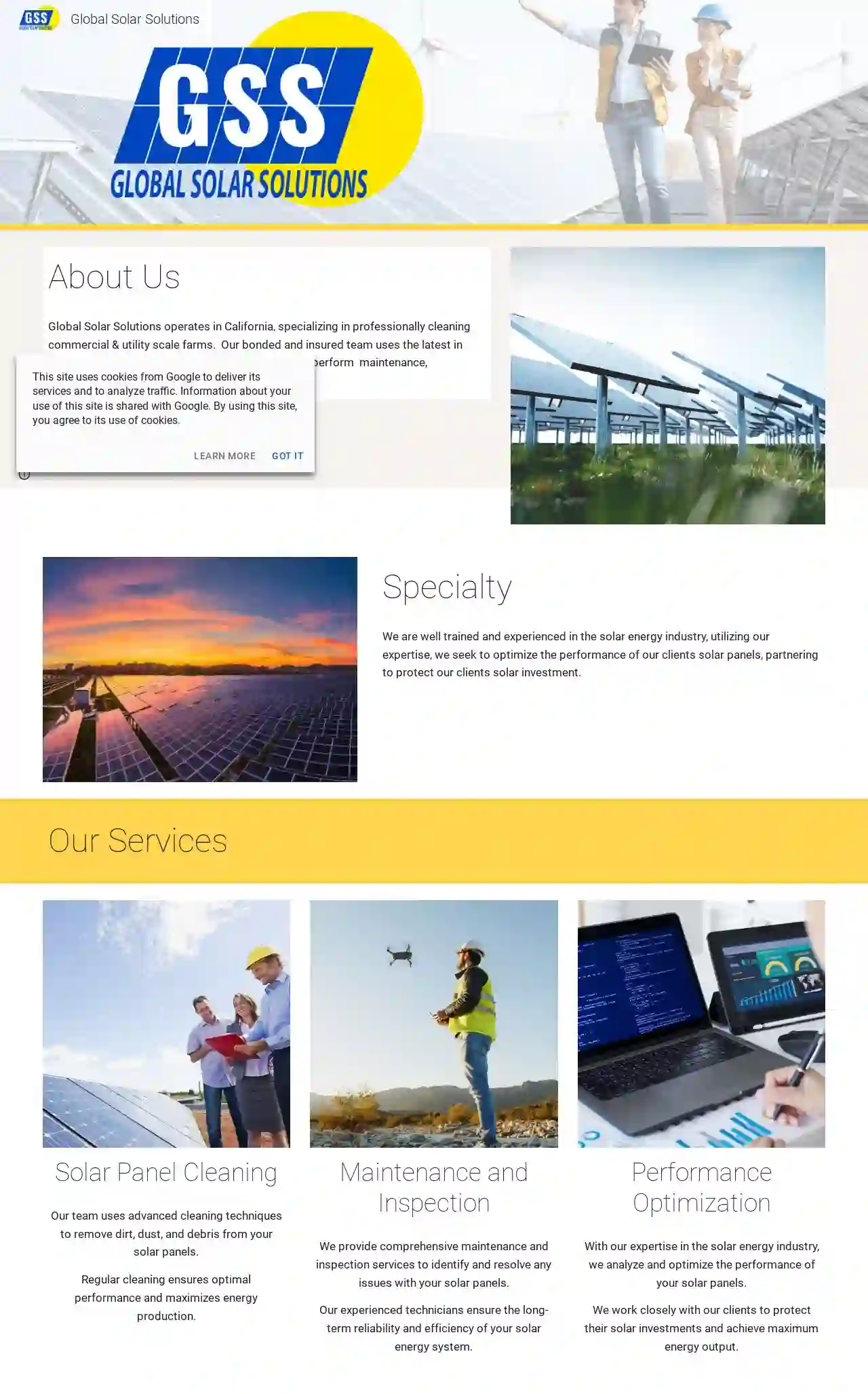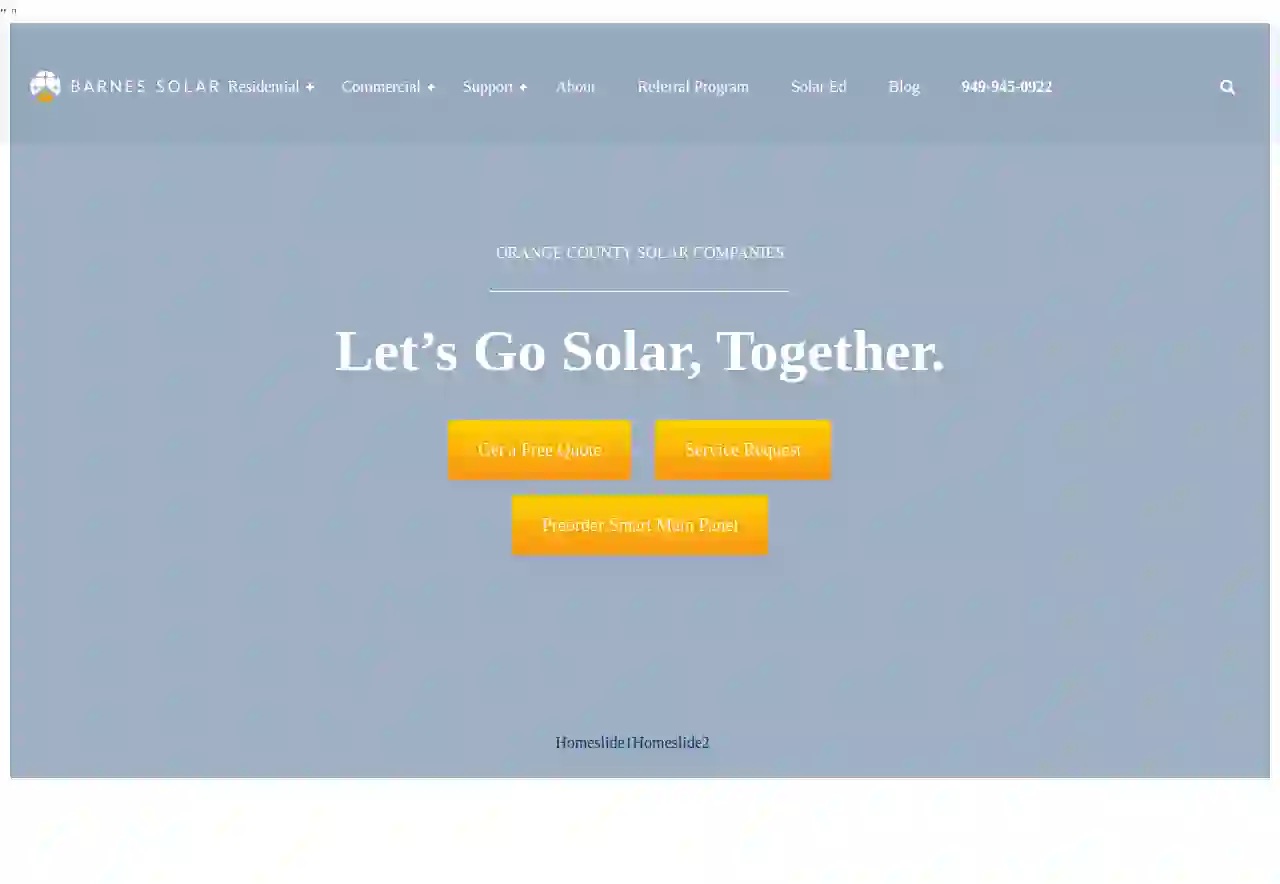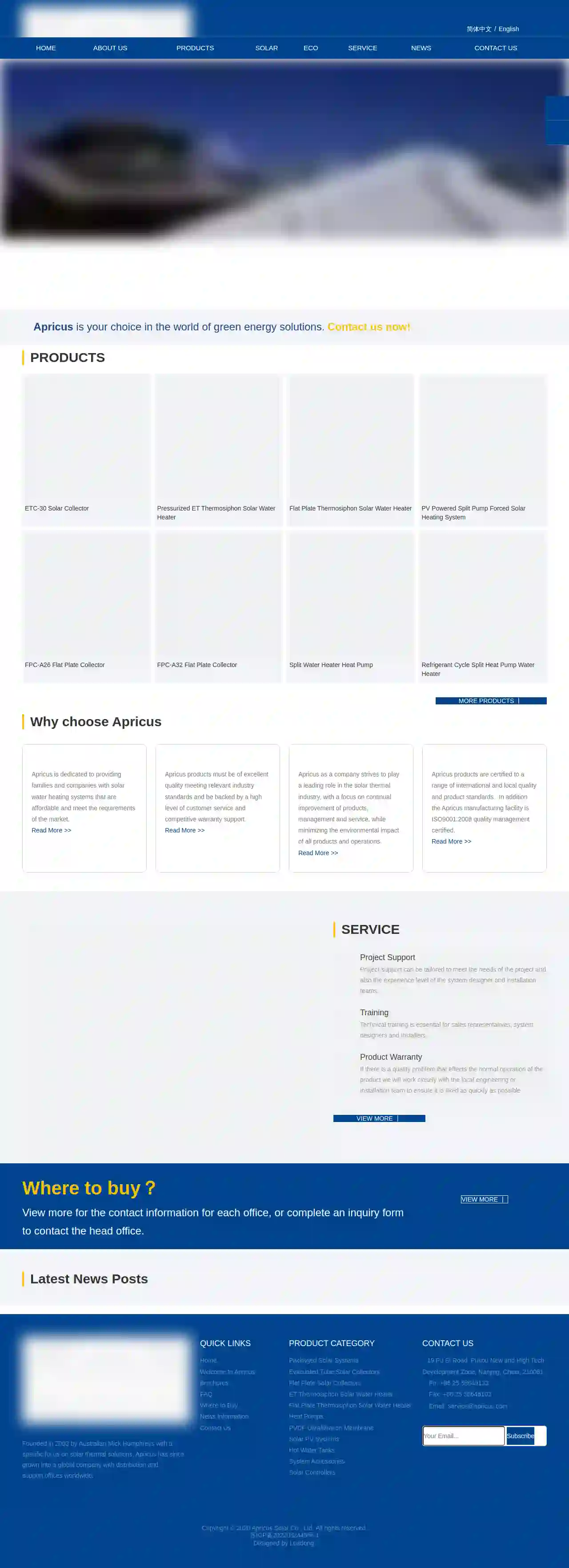Solar Installers Menifee
Find top Solar Energy Companies in Menifee
Get 3 FREE Solar Energy Companies quotes for your project today! Compare profiles, reviews, accreditations, portfolio, etc... and choose the best service.

Sunario Energy
54 reviews123 Solar Way, Suite 100, Riverside, 92501, USSunario Energy is a premier service provider in California, offering top-tier solar panels and cutting-edge battery storage solutions. With an industry-leading 25-year equipment warranty, they provide customers with a secure and sustainable energy solution. Their team of licensed professionals with over 15 years of expertise ensures superior results and dedicated customer support.
- Services
- Why Us?
- Accreditations
- Our Team
- Testimonials
- Gallery
Get Quote
Origin Solar USA
48 reviewsN/A, 910 Pleasant Grove Blvd. #353, Roseville, 95678, USOrigin Solar USA is a leading provider of solar energy solutions, dedicated to sustainability, innovation, and integrity. They offer cutting-edge solar technologies, roofing services, and advanced battery storage solutions. Their commitment to customer satisfaction, quality, and environmental stewardship sets them apart.
- Services
- Why Us?
- Accreditations
- Our Team
- Testimonials
- Gallery
Get Quote
Allesun solar
San Jose, California, 123 Solar Way, 95134, USAllesun was incorporated in May 2006, current headquarter in San Jose California USA and Vancouver Canada, one manufacturer each in Cambodia, Vietnam and USA. Specializing in manufacturing Solar Cell PERC&TOPCON Technology and Module. Current Capacities are 1GW solar cells and 1GW PV modules totally by Sole Invested. And we also have shared companies and with combined capacity of solar panels reaching up 5GW. The cells are manufactuer from Texturing, B/P Diffusion, Etching,LPCVD/RCA/ALD/PECVD/Sintering,Printing to IV Testing& Sorting and the traceability files could be provided as per request by customers. Quality is our first concern. All raw materials we purchased are from the suppliers of TOP5 in the world even at a higher cost, we believe it is the key and first step to keep high and stable quality. Currently we have obtained ETL/CSA(UL), DEKARA /IEC61215 /61730 /CEC and BIS for PV modules supervised under ISO9001:2015,ISO14001:2015.
- Services
- Why Us?
- Accreditations
- Our Team
- Testimonials
- Gallery
Get Quote
Sunterra Solar Inc
52 reviews9682 Via Excelencia, Suite 105, San Diego, 92126, USSunterra Solar is a leading commercial solar power contractor in California, with over a decade of experience in planning, engineering, building, and maintaining cost-effective solar energy systems for businesses, government, and nonprofit clients statewide. They specialize in turnkey solar panel system solutions that minimize business disruption during installation and maximize ongoing ROI. Sunterra Solar is a trusted partner for electrical and general contractors, providing expert solar energy contractor support throughout the bidding process, winning complex RFPs, and delivering bonded and insured solar power installations.
- Services
- Why Us?
- Accreditations
- Gallery
Get Quote
Global Solar Solutions
Global Solar Solutions, Solar Energy Industry, California, CA, USGlobal Solar Solutions operates in California, specializing in professionally cleaning commercial & utility scale farms. Our bonded and insured team uses the latest in innovative robotic technology to safely & efficiently perform maintenance, guaranteeing our work.
- Services
- Why Us?
- Gallery
Get Quote
Barnes Solar
4.761 reviews704 N Valley St Unit R, Anaheim, 92801, USBarnes Solar is a company that has been in the solar panel installation business for over 10 years. We are a small business, founded in 2009, and we have thousands of residential and commercial solar panel installations across Southern California. We have a reputation for quality service and construction, so you can be sure that your installation will be done correctly and on time. We also offer competitive quotes so you can find the best deal possible.
- Services
- Why Us?
- Accreditations
- Our Team
- Testimonials
- Gallery
Get Quote
Socal Energy
4.58 reviews#116, Van Nuys, 6621 Van Nuys Blvd, 91405, USSocal Energy Power provides excellent and high quality energy efficient products, coupled with unmatched customer service, at the most competitive pricing in the market today. We make your process simple by working directly with only the best suppliers and financing partners in the industry.
- Services
- Why Us?
- Accreditations
- Testimonials
- Gallery
Get Quote
Apricus
19 Pu Si Road, Pukou New and High Tech Development Zone, Nanjing, China, 210061, USFounded in 2003 by Australian Mick Humphreys with a specific focus on solar thermal solutions, Apricus has since grown into a global company with distribution and support offices worldwide. The company is dedicated to providing families and companies with solar water heating systems that are affordable and meet the requirements of the market. Apricus products must be of excellent quality meeting relevant industry standards and be backed by a high level of customer service and competitive warranty support. The company strives to play a leading role in the solar thermal industry, with a focus on continual improvement of products, management and service, while minimizing the environmental impact of all products and operations.
- Services
- Why Us?
- Accreditations
- Our Team
- Testimonials
- Gallery
Get Quote
HomeLink
4.976 reviews18954 Soledad Canyon Rd, Canyon Country, 91351, USHomeLink Solar is a locally managed solar company based in Santa Clarita, with offices in San Diego and the Inland Empire. Founded by former executives at large national solar providers, HomeLink aims to provide personalized attention to its clients. The company offers a variety of solar panel manufacturers with 25-year warranties, installed by qualified and licensed installers. HomeLink provides affordable solar energy systems with zero down and no money out of pocket, along with battery storage options.
- Services
- Why Us?
- Accreditations
- Our Team
- Testimonials
Get Quote
Plug It In Solar
4.821 reviews15013 Califa St, Van Nuys, CA 91411, 91411, USPlug It In Solar is a solar company, that provides solar panel installations while leading the way to greener & cleaner future with solar energy! We provide our customers with reliable and efficient service while striving to educate homeowners and business owners about the economic and environmental impact of installing solar panels.
- Services
- Why Us?
- Accreditations
- Gallery
Get Quote
Over 4,210+ Solar Companies on our directory
Our solar companies operate in Menifee & beyond!
SolarCompaniesHub has curated and vetted the Best Solar Businesses near Menifee. Find a top & trustworthy pro today.
Frequently Asked Questions About Solar Installers
- Tax Credits: Reduce your income tax liability based on the cost of your solar system.
- Rebates: Direct cash payments or discounts on the purchase of a solar energy system.
- Net Metering: Allows you to sell excess solar electricity back to the grid for credits.
- Renewable Energy Certificates (RECs): Tradeable credits representing the environmental attributes of your solar energy generation.
Can I go completely off-grid with solar panels?
Do solar panels increase my home value?
Are there any financial incentives for going solar?
How do solar panels work?
Can I go completely off-grid with solar panels?
Do solar panels increase my home value?
Are there any financial incentives for going solar?
- Tax Credits: Reduce your income tax liability based on the cost of your solar system.
- Rebates: Direct cash payments or discounts on the purchase of a solar energy system.
- Net Metering: Allows you to sell excess solar electricity back to the grid for credits.
- Renewable Energy Certificates (RECs): Tradeable credits representing the environmental attributes of your solar energy generation.